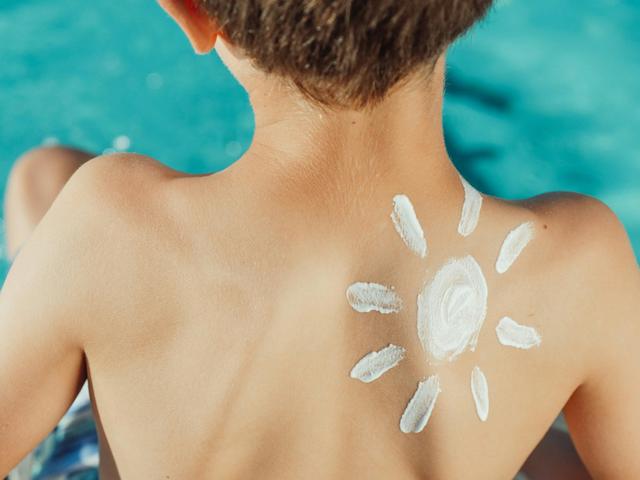Skin disorders are not exclusive to the contemporary era. Ancient medical texts depict people who faced the same rashes, lesions, and growths that we face today.
A dearth of efficient treatments also plagued most of human history, leaving a great number of individuals to suffer in shame and silence. Only in the past century have we begun to unravel the mysteries and acquire a thorough comprehension of the complexity of our body's outer layer. Thanks to this hard-fought knowledge, millions of people worldwide can access more efficient therapies.
So, whether you're fighting psoriasis, eczema, acne, or the signs of aging on your skin, you're fighting a very human battle to get rid of the conditions that prevent our skin from acting as the first line of defense for our bodies. When things don't go as planned, the thin, flexible, waterproof covering that protects us from the outside world may also turn on us. However, managing it has emerged as one of the most important missions in contemporary medicine. In this blog, we are going to guide you through the many skin conditions or diseases that are there, which can affect your physical and mental health as a whole, and the cures for those conditions as well.
And of course, with knowledge, it's necessary to take action. If you know you're dealing with a skin condition, your very next step should be to treat it. How? By consulting a dermat who will guide you through the process of curing the skin problem that's present.
Let's read in depth about the skin conditions and how we can treat them:
1. Acne Vulgaris
Commonly referred to as acne- acne vulgaris is a long-term inflammatory skin disorder that affects the skin's pilosebaceous units, or hair follicles and the sebaceous glands that surround them. Comedones (blackheads and whiteheads), papules, pustules, nodules, and in more severe cases, cysts, are the characteristics that define it. The face, chest, and back, which have larger concentrations of sebaceous glands, are the main regions affected by acne.
The main causes of acne are overproduction of sebum, unusual skin cell buildup, bacterial growth, and skin inflammation. Acne can vary in severity and significantly affect a person's quality of life and self-esteem.
Treating Acne:
Although there isn't a single therapy for acne, there are a number of options to control and enhance the disease. The severity of the acne frequently dictates the course of therapy, which may include a mix of topical and systemic medications.
Salicylic acid, benzoyl peroxide, retinoids, and antibiotics are some of the topical therapies for acne; oral antibiotics, hormone therapy, and isotretinoin are among the systemic treatments. Additionally, comedone extraction, laser and light therapy, and chemical peels are employed as adjuvant treatments. It's crucial to remember that treating acne may take several weeks or months to produce results, and it's advised to see a dermatologist for individualized treatment regimens.
2. Atopic dermatitis, or Eczema:
Eczema is a chronic inflammatory skin disorder that is often referred to as atopic dermatitis and is characterized by dry, itchy, and inflammatory skin. Although it can affect people of various ages, children are more likely to be affected by this widespread skin condition.
Though the precise etiology of eczema is unknown, environmental and genetic factors play a role. Eczema sufferers frequently have hyperactive immune systems that react erratically to irritants, allergens, stress, and changes in humidity and temperature.
Typically, eczema manifests as dry, red, and itchy spots on the skin that, if irritated, might burst into blisters or leak.
Treating Eczema:
Although eczema cannot be cured, there are treatments that can help control symptoms and stop flare-ups. Restoring the skin's protective layer, lowering inflammation, and managing itching are the objectives of therapy. Care plans are frequently customized based on the patient's age, level of symptoms, and therapeutic response. Topical interventions like moisturizers, corticosteroids, calcineurin inhibitors, and tar-containing products can help manage skin conditions by maintaining the skin barrier, reducing inflammation, and addressing dryness and irritation.
3. Psoriasis
The inflammatory, persistent skin disorder known as psoriasis is characterized by an excessive and fast growth of skin cells. It results in scaly, red spots that can hurt and itch. These patches, sometimes called plaques, can grow anywhere on the body, although they most frequently show up on the scalp, lower back, elbows, and knees.
Because psoriasis is an autoimmune illness, healthy skin cells over-proliferate at an accelerated rate due to an immune system attack gone wrong. The accumulation of dead cells on the skin's surface as a result of this rapid cell cycle gives rise to the recognizable plaques.
Although the precise etiology of psoriasis is unknown, a mix of environmental and genetic factors is thought to play a role.
Treating Psoriasis:
An overview of the various psoriasis therapies is given in the text. Topical therapies such as coal tar, salicylic acid, retinoids, corticosteroids, and vitamin D analogs are covered. Additionally, it discusses choices for phototherapy, such as ultraviolet B (UVB) and psoralen and ultraviolet A (PUVA) phototherapy. Additionally, discussed are systemic medications such as methotrexate, cyclosporine, and biologics. The literature places a strong emphasis on the necessity of customized treatment regimens and vigilant observation for any adverse effects or problems.
To Conclude-
There are several other skin conditions like vitiligo, melanoma, urticaria (hives), melasma, etc. Skin problems exist in various forms, from psoriasis and melanoma to acne and eczema, but they all have the potential to have a significant influence on a person's life. Beyond just the physical symptoms, the look of rashes, lesions, and growths can cause anguish, shame, and pain. Even if the field of dermatology has advanced significantly and is now able to treat patients more effectively than in the past, the desire for flawless, smooth skin still motivates scientists to develop novel treatments and gain fresh perspectives on the intricate biology of our skin. Although skin disorders can be obstinate foes, millions of people are able to manage their problems with the correct information, medical intervention, and self-care routine.





